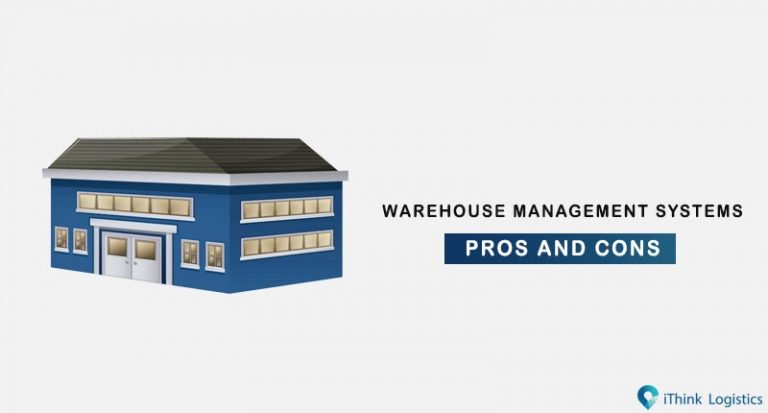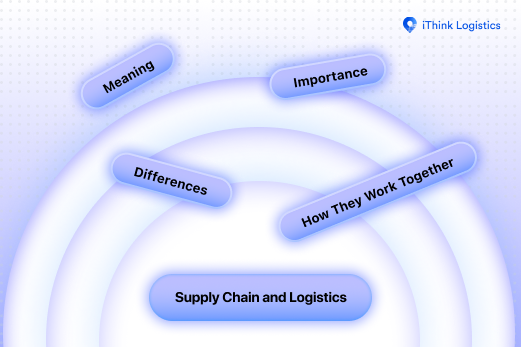The warehouse management system has seen immense growth in the past few years and it continues to grow to date. Therefore, it is difficult to determine how the new technologies interface with the automation system. The year 2019 has seen immense advancement in navigating user interfaces from warehouse management systems vendors. Here are some major warehouse management system pros and cons.
Not only that they also have shown huge advancement in deploying the system’s capabilities in the surfeit of mobile devices. This also included a huge production of cloud offerings that helped to simplify deployment and the support systems of the particular companies. The ongoing cloudification of WMS made the customers more attracted towards the warehouse management investments along with their price points.
Read more about the functions of the warehouse management system.
Vendors of the warehouse management system continued their interoperability in mobile devices and most importantly on the Internet of thing’s (IoT) world. With these, they aimed for “plug and play” compatibilities in various devices such as smartphones, systems with voice activation features like Alexa and Siri, barcoding, tracking “internet of things”, robotics, labelling, tracking device, and many others. They tried to aim for this compatibility as much as it was possible.
For complementing the baseline warehouse management systems software, AI along with analytics was accumulated to enhance decision-making criteria for the warehouse managers. This also helped them in properly interacting with huge scale warehouse automation. All these elements and moves of the WMS Company were much needed to overcome the warehouse market pressure that the warehouses were going through.
Advantages of the Warehouse Management System
Are you running low on space in the warehouse? Do you think you fail to compartmentalize your inventory when dealing with products according to their importance in business operations? Do you lack staff members while fulfilling huge scale demands? Are you satisfied with your current inventory and order shipment accuracy level? Are you concerned about how much you need to invest in the inventory? All these questions are answered with the one only warehouse management system.
If you want to know about the warehouse management system pros and cons, the creative is given below:
WMS stands for the warehouse management system. It plays an integral role in helping your supply chain run smoothly. It also helps in tracking the movement, location, and status of inventory within warehouses.
Warehouse management systems help in updating your ERP in a real-time relationship as well as assisting with the management of staff. Therefore, using WMS you will be able to keep better track of the staff, which is required to help control movement and replenishment. This, in turn, will help in reducing inventory while creating more space in your warehouse. Some of the Warehouse management system benefits are:
- You will be able better maintain perpetual real-time inventory count
- You can increase the visibility of the systems and this will also increase your credibility and viability
- You will be able to easily monitor customer concerns as such obtaining order status in real-time
- You will be able to ship the right goods on time every single time
- Lastly, it will also help considerably to reduce costs.
Good warehouse management features are perfectly designed for large retailers that can employ multiple pickers and packers working across different locations. The WMS functionality is built around three core pillars that are:
- The batch that is assigned to pick orders from multiple sales channels
- Booking new inventory into the warehouse
- Lastly carrying out inventory checks or stopping takes.
This helps your warehouse team to pick orders in bulk making sure that everything is picked quickly and accurately.
Types:
There are mainly three types of warehouses and three types of warehouse management systems. They are:
- Standalone warehouse management systems: This type of warehouse management system are simply bought for their WMS features and no other related reasons. These systems can be easily accumulated with existing or future solutions. However, they are presented as specialized products and sold as such without any further supply chain functionalities. Though some vendors go further into offering basic management tools for transportation, the main focus remains on the best breeds of warehouse management systems. The best breeds include the most superior and salient features of all the warehouse management systems frameworks that show the right potentiality. For warehouse management systems, this usually comprises of warehouse operations and inventory management systems. Standalone warehouse management systems consist of a tracker for the expiration date, slotting, barcode scanning, picking, receiving, cycle counting, put away, and shipping.
- Supply chain modules: While considering supply chain modules as a category of the warehouse management system, you should consider it as a subcategory of the very own supply chain management framework. This has abroad scope when it comes to managing all the processes starting from managing good terms with vendors to all the business processes along with risk assessments of the same. It automates tasks like material sourcing, inventory management, and maintaining product cycles.
- Combined with ERP: ERP is one of the most powerful software solutions that have the combined capability of many systems. It provides almost every core application that boosts 3Pl processes to work seamlessly: from client relationship management, supply chain organizations, accounting, human resource management, and many more. ERP combined systems offer warehouse management elements and features. Nevertheless, it does not fall under the core functionality of ERP software. When choosing ERP software, it should be kept in mind that the software should provide features of the warehouse management system. This usually comes at a high price.
Warehouse Management System -Disadvantages
Every Warehouse management system’s advantages are numerous. However, it also has its fair share in some disadvantages. Every successful system will have a little bitter taste to it. Some of them are discussed below:
- The maintenance of the master data is quite difficult to manage when it comes to huge scales.
- The additional steps for the in-between process of picking and receipting are quite time-consuming.
- Warehouse management systems always require expert knowledge to compose maximum benefit. This is not always possible to have thorough expert knowledge. Generally, people in the work field do not care for knowledge that much.
- Incorrect processing can create a huge problem and can be very critical in resolving it.
- Warehouse management provides much better automation systems but requires a lot more attention and maintenance with equivalent discipline. The reason is due to its certain complexities it is more prone to errors.
- It is better to use the warehouse management system only if the standard logistics functions are insufficient according to your business needs.
Conclusion
As the wave of complexity for fulfilling orders at a faster rate merges, the analyst suggests more business operations grab on to the value that the warehouse management systems serve on the table.
The unprecedented wave of next-generation technological enhanced warehouses is bringing unpredictable real-time data visibility into organizational assets, transactions, and people in this plethora of industries: from circumspect manufactures in automobile industries, machinery, and electronics to beverage and food companies, to pharmaceutical and healthcare sectors, to many more. Warehouse management systems are likely to pose a standout situation in 2020. Nevertheless, everything comes with little complexity but other than that if the bitter taste of the system can be dealt with, then the business organization will see the light of success in no time.











